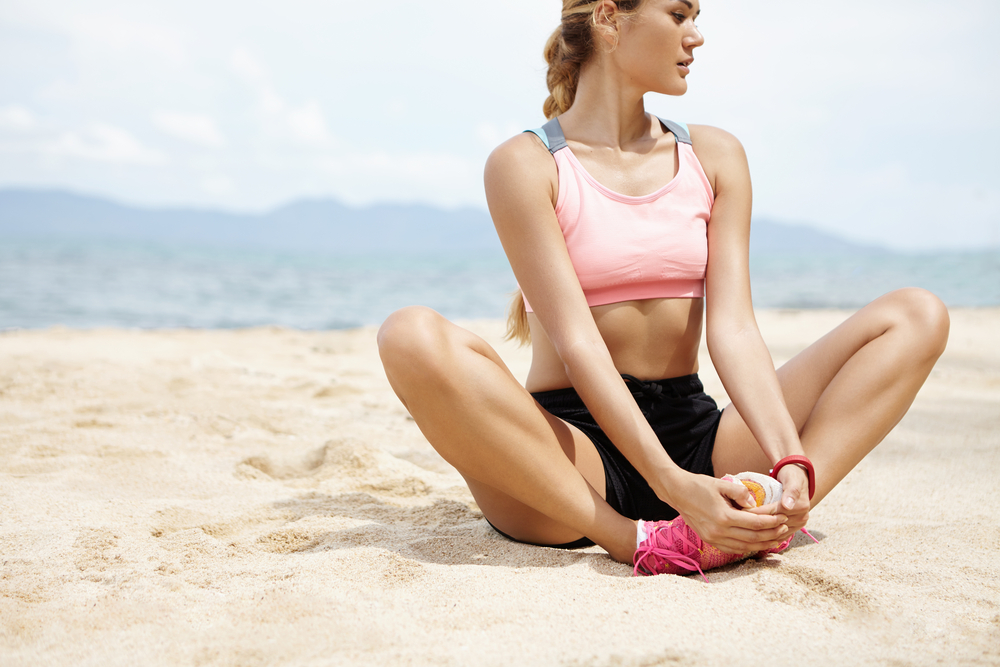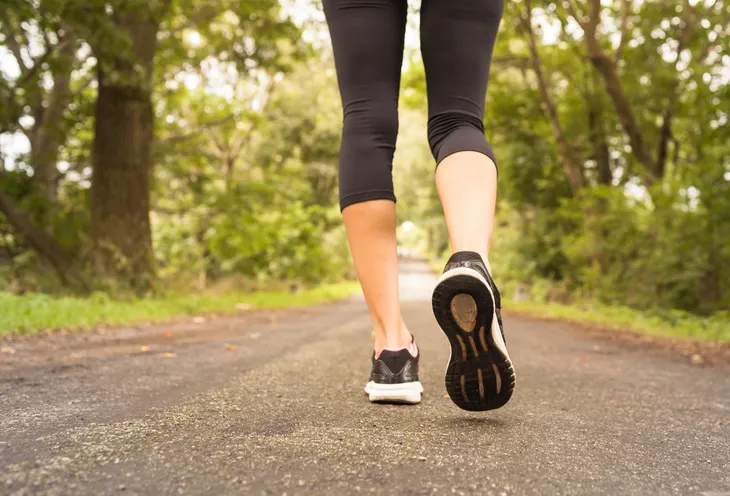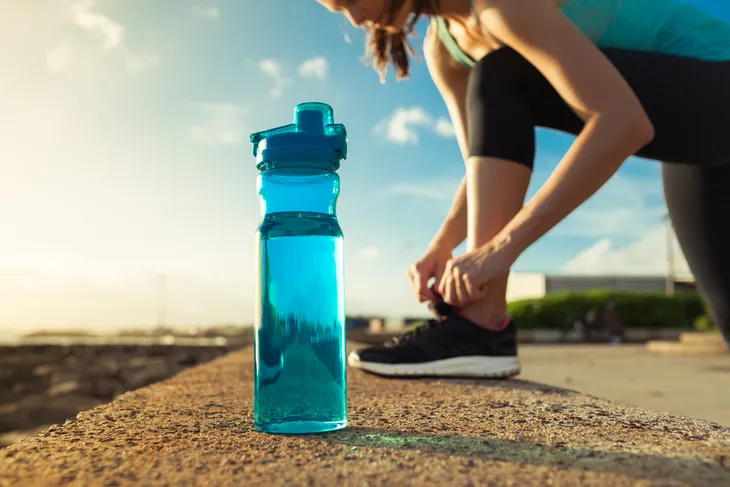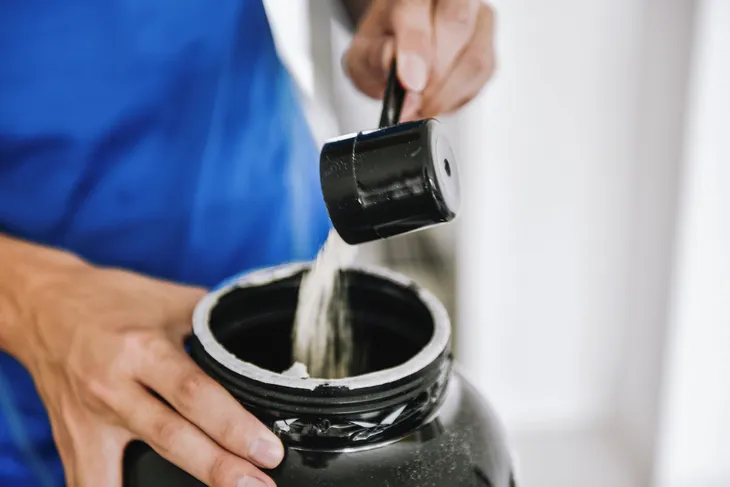Each and every one of us have very personal reasons for working out. We may be training for a marathon, trying to shed a few pounds for an upcoming wedding, or exercising to improve cardiovascular health and prevent other genetic, chronic conditions.
Regardless of if you run, swim, cycle, do hot yoga, box, or pump iron for fitness, consider these seven post-workout steps essential for maximizing your exercise efforts and furthering your fitness progress…
Cool Down Time
Do you walk a block after your run? Or do you run directly home and move onto your day without skipping a beat? Chances are if you skip the cool down portion of your workout, you’re leaving yourself prone not only to fitness injuries, heart damage, and also to fainting. According to the American Heart Association, this is why the cool down is as vital as the workout itself.
Considering that intense exercise causes the heart rate to soar and the blood vessels in your legs to expand—ceasing activity suddenly without a cool down period increases stress on the heart and causes blood to collecting in the lower body (legs and feet), leaving you prone to dizziness and a possible fainting episode as blood pressure plummets quickly. So take a few moments to walk off your workout and give your body a few moments to wind down safely after exercise.
Top Up Fluid Levels
Just as you hydrate prior to your workout, re-hydration post workout will replace vital fluids and nutrients lost during strenuous exercise. According to a research study on the effects of hydration on athletic performance from California University of Pennsylvania, post-exercise hydration is essential for the immediate return of normal physiologic function.
Fluids that are lost via perspiration include water, sodium (electrolytes), as well as the replenishment of carbohydrates for glycogen (energy) stores (energy), which enhance future exercise and prevents injury. Moderate athletes can re-hydrate with water, but particularly intense workouts may require coconut water or sports specific drinks.
Stretch it Out
The best way to avoid stiff, sore muscles in the days following a workout is to take the time to properly stretch out your muscles. Stretching after a workout is just as vital as the warm-up prior to your workout, according to medical doctors at New York University’s Langone Medical Center.
Performing some stretches post-workout improves flexibility, aids muscle recovery, and restores range of motion, which in turn lessens stress on the joints and tendons that leave you prone to injury. Try stretching with a foam roller after exercise to increase blood circulation, ease any knots, and hasten muscle recovery.
Wash Away Bacteria
Of all the potentially unsavory things you can pick up from the gym showers (i.e., Plantar warts), research published in the Journal of Athletic Training assures us that MRSA, a possibly deadly and antibiotic-resistant staphylococcus infection is much worse. The report outlined that showering or cleaning bacteria from skin post-workout is important for many hygienic, safety reasons.
Remaining in sweaty clothes all day long post workout leaves you at risk of several bacterial infections—among them MRSA, impetigo, athlete’s foot, jock itch, ringworm, and herpes simplex. However, a post-exercise shower will wipe away perspiration and prevent a “ripe” environment for bacteria to spread and cause rashes, skin irritations, and skin infections. If you don’t have time to shower post-workout, clear away sweat with a face cloth and soap, or a baby wipes, and be sure to change into fresh, clean clothes.
Refuel with Protein
While topping up fluids is vital after a workout—so is topping up your energy stores with a protein and carbohydrate rich meal. According to a research report published by the Journal of Physiology, eating a protein-rich meal immediately following exercise shifts the composition of weight loss toward fat loss versus muscle loss.
The study monitored the progress of 13 subjects during a 12-week period—half of the participants were given a protein supplement immediately following their workout while the other half were given the same protein supplement 2-hours after their workout. Findings revealed that those who consumed the protein immediately gained significant progress in dynamic and isometric strength as well as gains in muscle mass. However, the delay group only improved their strength dynamically (moving weight).
Don’t Skimp on Carbs
In addition for reaching for a protein-rich meal post-workout—the inclusion of simple carbohydrates (i.e., fruits and dairy) is of equal importance. According to research from the National Institutes of Health, it’s carbs (or glycogen, which are carbs stored as energy in the muscles) that are the most essential fuel utilized by your muscles during a workout. Without adequate carbs, your fuel tank will be running on fumes mid-workout.
Carbs following a workout are vital for body re-energizing, muscle repair, and muscle growth. So don’t buy into the “low carb” or “no carb” fad. After all, glycogen is considered essential to optimal exercise (including resistance training) performance—with a whopping 80-percent of ATP (Adenosine Triphosphate or usable energy for cells) obtained from glycolysis.
Record Your Progress
According to a recent article in the Wall Street Journal, 1 in 10 U.S. adults owns a fitness tracker while 1 in 50 own a smart watch—and for good reason. The simple act of reflecting on your workout by keeping track of your progress (either via technology or pen to paper) is a powerful motivator for success.
After all, a study conducted by the Kaiser Permanente Center for Health Research in Portland, Oregon, shows that tracking progress and acknowledging your diet, health, and fitness accomplishments puts your objective progress right in front of you. This way you can see your goals being achieved, pinpoint where you need improvements, and remain motivated on your fitness journey.










